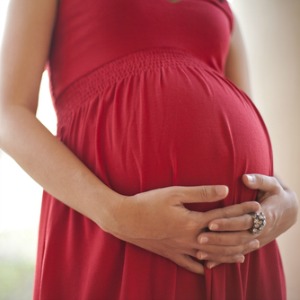Researchers claim to find link between folate during pregnancy and autism

A team of US researchers claim to have found a link between consuming too much folate during pregnancy and autism, but experts have urged caution around the conclusions.
The team, from Johns Hopkins Bloomberg School of Public Heath, Baltimore, USA, examined 107 children with autism and 1284 non-autistic children, with maternal blood plasma levels of vitamin B12 and folate taken at the time of delivery analysed to assess for any observed increase in risk for developing autism.
The observational study reportedly found that mothers who had a plasma folate level of more than 59nmol/l within one to three days of delivery had double the risk of their child having autism.
But the results, which are set to be presented on Friday at an international meeting for autism research in Baltimore, have been met with caution as they are yet to be peer-reviewed, despite being announced at a press conference today.
The group detected an association between vitamin B12 and autism, with the researchers claiming that mothers with a vitamin B12 level of more than 600pmol/l triple the risk of their child having autism.
The biggest risk was found in mothers who had high levels of both B12 and folate, where their children were found to have a 17-fold increased risk of developing autism.
But the researchers are yet to define what the absolute risk of their findings are and have said that their results ‘should be interpreted with caution’.
Ramkripa Raghavan, lead author of the study says: ‘We tell women to be sure to get folate early in pregnancy. What we need to figure out now is whether there should be additional recommendations about just what an optimal dose is throughout pregnancy.’
Dr Ginny Russell, senior research fellow for the Child Health Group at the University of Exeter said: ’Studies are frequently published about ‘causes’ of autism. Often, like this one, they are based on correlations, which do not prove causality and have not been replicated.
’In this case, the study in question is not yet peer reviewed or published. I would urge caution when interpreting these results – more evidence is needed to support the findings before jumping to hasty conclusions.’
Dr Max Davie, mental health lead for the Royal College of Paediatrics and Child Health, added: ’This study only shows an association, which may be due to chance, reverse causation, or a common unknown factor causing both an increase in ASD diagnosis, and B12/ folate levels.
’So even on the basis of their data, which has not been peer-reviewed, the authors are going way out on a limb in drawing causal connections here, and are being quite irresponsible in undermining decades of public health work to increase the numbers of women taking folate before and during pregnancy, in order to prevent potentially devastating neurological conditions.’
Pulse July survey
Take our July 2025 survey to potentially win £1.000 worth of tokens

Visit Pulse Reference for details on 140 symptoms, including easily searchable symptoms and categories, offering you a free platform to check symptoms and receive potential diagnoses during consultations.










